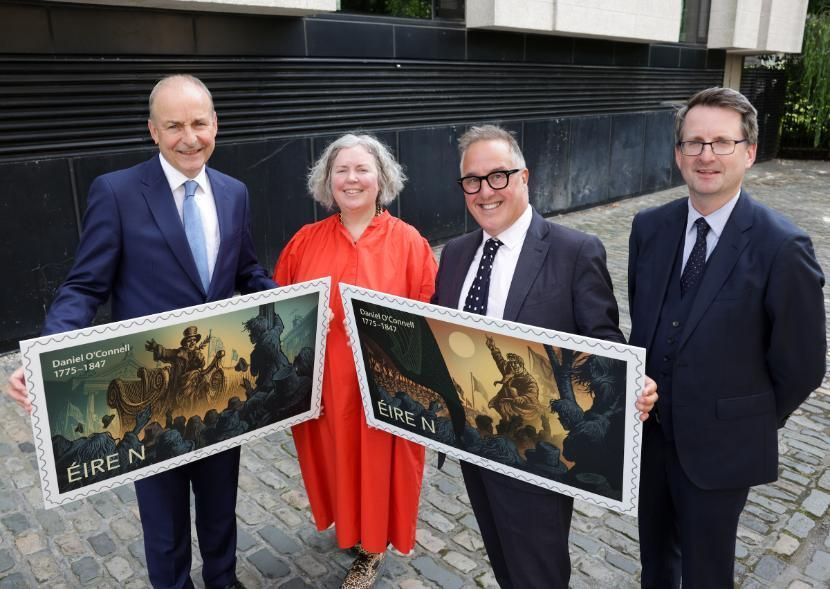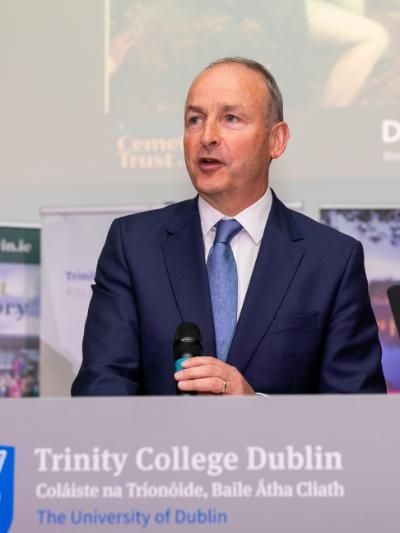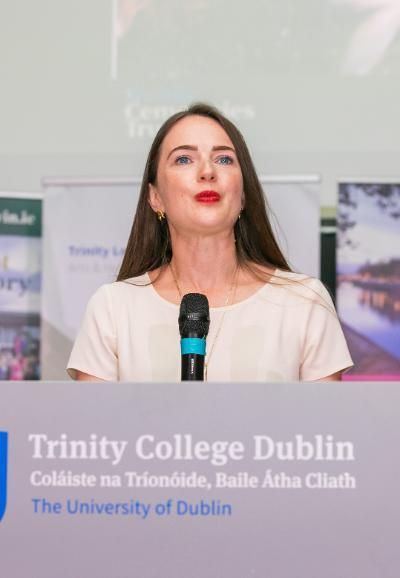A NEW stamp has been issued to mark 250 years since the birth of the Irish nationalist leader Daniel O’Connell.
Born near Cahersiveen in Co. Kerry on August 6, 1775, O’Connell went on to become one of the most important figures in Ireland’s history, having led the movement for Catholic emancipation.
His successful campaign brought about the Catholic Emancipation Act of 1829, which granted political and civil rights to Catholics in Ireland and in Britain.
He was also recognised internationally for his opposition to slavery and for providing a voice for the oppressed.
He later became known as ‘the liberator’.
 Taoiseach Micheál Martin, Provost Dr Linda Doyle, An Post CEO David McRedmond and Director of Trinity Long Room Hub Proffesor Patrick Geoghegan revealed the new stamp this week (Pic: TCD)
Taoiseach Micheál Martin, Provost Dr Linda Doyle, An Post CEO David McRedmond and Director of Trinity Long Room Hub Proffesor Patrick Geoghegan revealed the new stamp this week (Pic: TCD)Taoiseach Micheál Martin revealed the commemorative stamp during a two-day symposium dedicated to O’Connell’s life and legacy held at Trinity College Dublin this week.
The event, which took place over July 29 and 30, included a keynote speech by Mr Martin as well as lectures by the Ukrainian Nobel Peace Prize laureate Oleksandra Matviichuk and former UN Special Rapporteur Professor Fionnuala Ní Aoláin.
 The Taoiseach spoke at this week's symposium
The Taoiseach spoke at this week's symposium“Daniel O'Connell is not just an iconic figure in our history, he was known and respected throughout much of the world because of his forthright dedication to the ideals of equality and freedom,” Mr Martin said.
“This major international conference is an opportunity to reflect on this crucial element of O'Connell's legacy,” he added.
Organised by the Trinity Long Room Hub, Trinity’s flagship Arts and Humanities Research Institute, and its new director Professor Patrick Geoghegan, the event brought together leading historians, human rights experts, and public figures to explore the global legacy of O’Connell.
 Ukrainian Nobel Peace Prize laureate Oleksandra Matviichuk speaking at the event
Ukrainian Nobel Peace Prize laureate Oleksandra Matviichuk speaking at the eventIt forms part of the Government’s Daniel O’Connell Commemorative Programme.
“The 250th anniversary of the birth of Daniel O'Connell is an opportunity to commemorate his life and achievements and explore how his legacy can inform approach some of the same problems today when it comes to the denial of human rights and liberties,” Professor Geoghegan said.
“The Trinity Long Room Hub is delighted to bring together national and international experts to explore these issues, and the lessons we can learn from a study of the liberator," he added.

